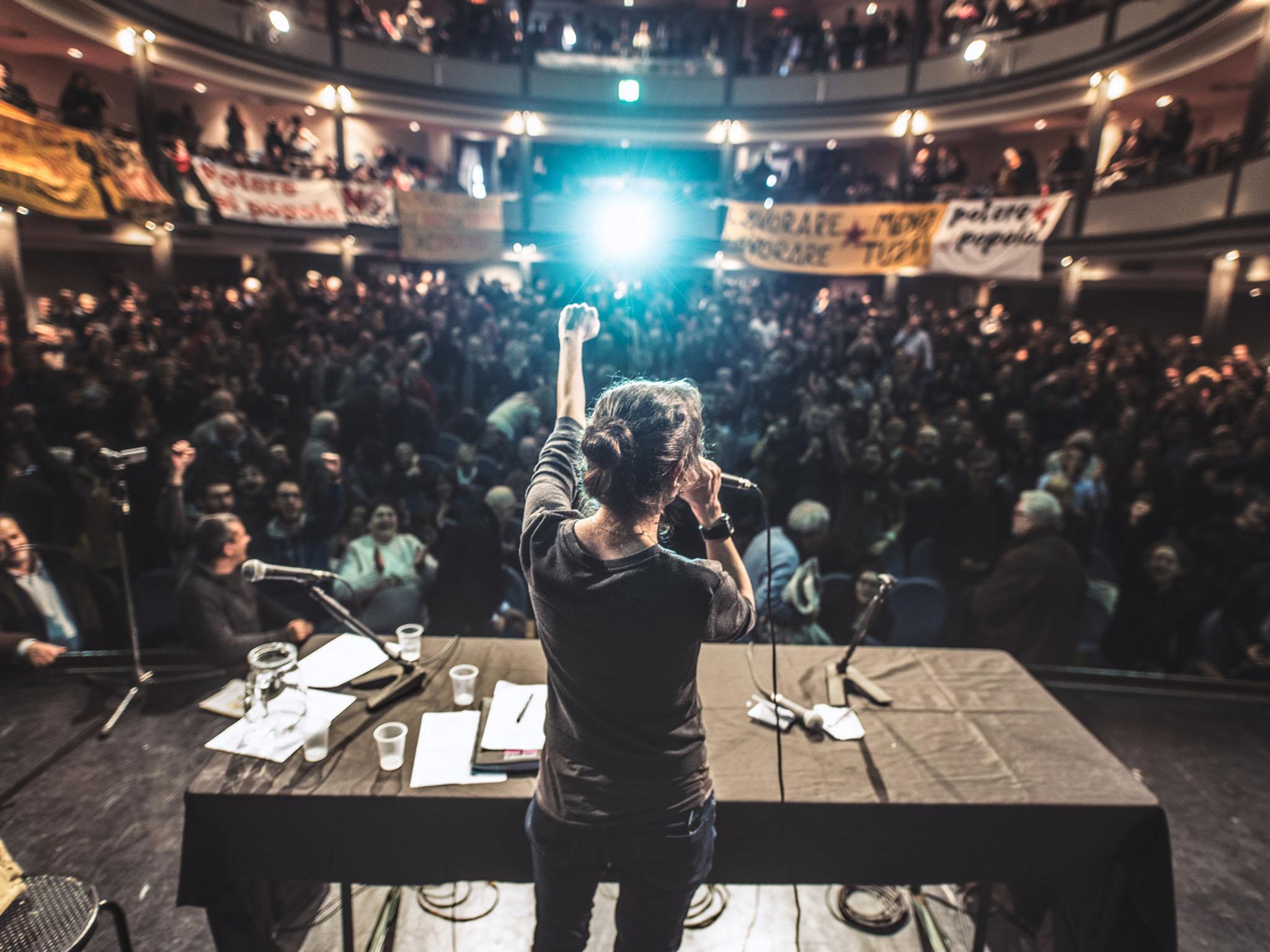How Jeremy Corbyn and his grassroots movement has inspired young Italians to launch their own Momentum
Young Italians face a 35 per cent unemployment rate and lower standards of living than their parents – an entire generation hung out to dry by the technocratic, neoliberal administrations of recent years

Your support helps us to tell the story
From reproductive rights to climate change to Big Tech, The Independent is on the ground when the story is developing. Whether it's investigating the financials of Elon Musk's pro-Trump PAC or producing our latest documentary, 'The A Word', which shines a light on the American women fighting for reproductive rights, we know how important it is to parse out the facts from the messaging.
At such a critical moment in US history, we need reporters on the ground. Your donation allows us to keep sending journalists to speak to both sides of the story.
The Independent is trusted by Americans across the entire political spectrum. And unlike many other quality news outlets, we choose not to lock Americans out of our reporting and analysis with paywalls. We believe quality journalism should be available to everyone, paid for by those who can afford it.
Your support makes all the difference.A new movement has sprung up in Italy called “Potere al Popolo” (Power to the People), taking inspiration from the new left in Europe, in particular Momentum and the transformation of Labour under Jeremy Corbyn. Founded last month at a meeting in Rome, it has spread to 90 towns and cities in the country, holding public assemblies to construct a slate for the general election likely to be held in March.
Supporters point to falling living standards and the betrayal of young, precarious workers by successive governments as their motivation for taking matters into their own hands. Just as the betrayal of younger generations in Britain by the ideological convergence of the main parties prompted an influx of support for Corbyn and Momentum, this new movement in Italy signals a rejection of the choice between varying degrees of market-driven policies offering no hope for the country’s dispossessed youth.
In Italy, the ostensibly centre-left Democratic Party implemented harsher neoliberal reforms than even Berlusconi’s right-wing coalition, forcing school students to work for free and “liberalising” the labour market to make it easier to fire workers and employ them on short-term, uncertain contracts.
This is deepening a generational divide that is even greater than in the UK. With young Italians facing a 35 per cent unemployment rate and lower standards of living than their parents, an entire generation has been hung out to dry by the technocratic, neoliberal administrations of the last few years, opening up a yawning chasm on the left that had, until November, lain empty.
Potere al Popolo aims to provide a truly leftist alternative in a political climate where the far right has been emboldened by economic insecurity and falling living standards which are the result of austerity measures taken by the main political parties. According to Giuliano, one of the main organisers in Naples, activists were inspired by Momentum’s ability to mobilise as a social movement for the purposes of winning party political elections: “Incorporating the positive elements of social movement struggles from recent mobilisations into a well-organised party form engaged activists without enforcing a top-down stifling approach. The innovation of Momentum using social media and local meetings to create a wave of popular support in such a short space of time serves as a great example of what can be achieved.”
The electoral platform being assembled under the Potere al Popolo banner includes rank-and-file trade unions like USB, which boasts 500,000 members and is particularly strong amongst hyper-exploited workers in Italy’s burgeoning logistics sector. Integral to the project are the various migrant and housing initiatives that have been establishing social infrastructure where the state has failed, like the Je So’ Pazzo social centre in Naples – complete with health clinics, library, canteen, bar, and football pitch – where Potere al Popolo was born. Like much of the surge behind Momentum, the left’s resignation to extra-parliamentary activism in recent history has accumulated the forces necessary to launch this platform.
Inspiration has come also from La France Insoumise, whose leader Jean-Luc Mélenchon sent his blessing to Potere al Popolo last weekend to join with them in a “common adventure for the construction of a people’s alternative for Europe”, condemning both Italy’s governing Democratic Party and, in Greece, Alexis Tsipras’s Syriza, for compromises, betrayal, and “smashed hopes”.
While there is little chance of the kind of electoral result we saw in Britain in June, activists behind Potere al Popolo have a long-term strategy in mind: “Our real aim is to start a process that can give back to our communities a confidence in their capacity to effect change, as well as to shift the terms of an electoral campaign which is shaping up to be the most reactionary of the last 20 years. In doing so, we aim to create a lasting movement.”
Join our commenting forum
Join thought-provoking conversations, follow other Independent readers and see their replies
Comments